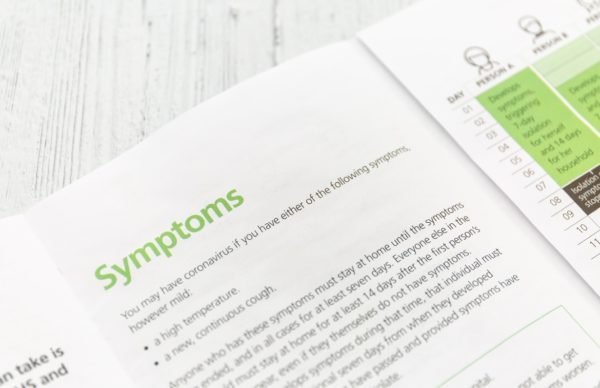
We’ve been dealing with the global effects of the COVID-19 pandemic for two years. Throughout that time, millions of people have contracted the virus, and while many have been able to continue through life as normal, it’s impacted others in severe and dangerous ways. In the UK, nearly 700,000 people have been hospitalized due to the virus.
Whether you’ve been directly impacted by this illness or not, it can be just as difficult seeing a loved one struggle with it. Hospitals are overloaded and medical staff is burnt out. Elective surgeries like cosmetic procedures are being put on the back burner for many as every doctor, nurse, and specialist is needed to treat COVID patients.
It’s hard to see someone you care about in the thick of that kind of chaos, especially when they’re weak and sick. In some areas, you may not even be able to visit, or your interactions with them may be limited.
That can take a toll on their mental health, as well as yours.
So, despite certain restrictions, limitations, and difficulties, what can you do to support a hospitalized loved one during COVID-19? How can you make sure you’re there for someone you care about while keeping them (and yourself) safe?
Being an Advocate
Different hospitals will have rules and restrictions in place that are necessary for visitors to follow. Unfortunately, that might mean your time with your loved one is limited each day. In some cases, you may not be able to see them in person at all.
But, that doesn’t mean you can’t stay connected, and it certainly doesn’t mean you can’t advocate for them. You can give yourself peace of mind and make sure they’re getting the best care possible by staying organised once they enter the hospital. Make sure you keep track of the following important information:
● The name of their attending physician
● Their room number
● A direct phone number for their room
● The name of their case manager, if applicable
If you want to receive regular updates or notifications about any changes, list yourself as the point person or emergency contact for your loved one. You can even request a daily call from someone in the hospital to update you. The more information you have about the person you care about, the better equipped you’ll be to help them in any way you can, even if it’s just making sure everything else in their life is being taken care of while they’re hospitalized.
Staying Connected
Talking to the hospital where your loved one is staying about their visitation policy should be a top priority. Being in the hospital isn’t fun for anyone. With this particular virus, it can be quite scary, especially when you feel alone. With that being said, however, you don’t want to overwhelm the person you love. If you’re allowed to visit, do so each day, but keep them shorter (about 30 minutes) to help them keep up their strength and energy.
If you’re not able to visit your loved one in person, make sure to stay connected in other ways, including:
● Phone calls
● Video chats
● Sending care packages
● Sending flowers
● Organizing meal deliveries
A sense of connection and support can help someone in the hospital fight back against the serious health issues of isolation and loneliness. They don’t need to be constantly reminded that they’re in the hospital – they’re not going to forget any time soon. So, whenever you do get a chance to talk to your loved one, make sure you’re not focusing solely on their condition or health. Be positive! Talk about their family, their hobbies, or even interesting news stories you’ve heard lately. Casual conversation can be a welcome distraction for both of you, and it can provide the person you love with a sense of much-needed normalcy as they work on getting stronger.
Taking Care of Yourself
When someone you care about is in the hospital, it’s hard to focus on anything else. But, it’s impossible to pour from an empty cup. You can’t give that person the attention and care they need if you aren’t taking care of yourself, too.
That starts by staying well-informed on the latest guidelines and suggestions from epidemiologists. It’s their job to keep the public informed about specific health events. The more you educate yourself on what those in the medical field have to say, the more proper precautions you can take to stay healthy. You’ll also be more in tune to recognize any potential symptoms you might start to experience, yourself.
By keeping yourself as protected as possible from COVID and other illnesses, it’s more likely that you’ll be able to see your loved one in person without worrying about getting them sicker.
It’s also important to take care of your mental health. Seeing someone you love in the hospital is hard. It’s draining. It’s also not uncommon to let your thoughts wander to the worst possible places when you’re stressed and overwhelmed. This is a perfect time to remind yourself that self-care isn’t selfish.
Make your mental and physical health a priority so you can be strong and present for the person you love. Exercise each day, eat healthy meals, and try things like mindfulness, meditation, or journaling to manage your mental health.
Hopefully, we’re nearing an end to this pandemic and the hospitalizations that have gone along with it. In the meantime, if someone you love is in the hospital, keep these ideas in mind to be there for them and to let them know they’re not alone.
